| Support independent journalism |
| |
|
| 
|  | | | First Thing: Israeli strikes hit Beirut as key route out of Lebanon cut off | | | Israel has ordered people in 20 more towns in southern Lebanon to evacuate immediately. Plus: the future of the death penalty in Japan | | 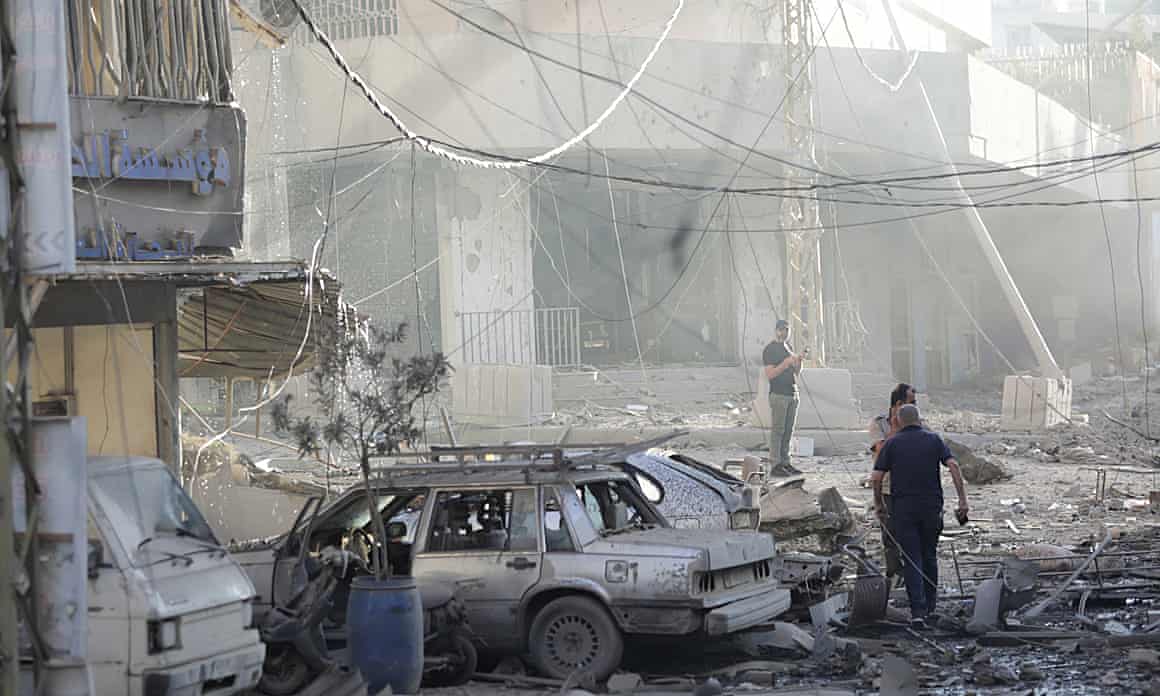 |  Destroyed buildings and vehicles in the aftermath of Israeli strikes on a neighbourhood in Beirut’s southern suburbs. Photograph: Ali Alloush/Reuters
| | Vivian Ho
| | | Good morning. As Hezbollah continued to attack northern Israel, the Israeli military launched a series of strikes on southern Beirut in one of the most intense bombardments on the city since the campaign began last week. The New York Times and Axios have reported that Hashem Safieddine, the most likely candidate to replace Hassan Nasrallah as leader of Hezbollah and the head of its executive council, was the target of the strikes. The attacks came as Israel cut off a key route out of the country, with the World Food Programme’s country director for Lebanon, Matthew Hollingworth, reporting that the Masnaa border crossing between Syria and Lebanon had been “very significantly bombed”, limiting people’s ability to flee. Israel has accused Hezbollah of using border crossings with Syria to bring in weapons. -
The first airstrike by an Israeli jet in the West Bank since the second intifada: In addition to the attacks in Lebanon, an Israeli airstrike on a refugee camp in Tulkarm in the West Bank killed at least 18 people, including two children. The Israeli military claimed the airstrike killed a local Hamas leader. -
One year after the 7 October attacks: After one year of war, Israel is facing mounting diplomatic isolation. Pew Research found in May that although most Americans still sympathised with Israel, those under 30 did not, and seven in 10 Democrats and Democratic-leaning independents had little or no confidence in the prime minister, Benjamin Netanyahu. -
How will Israel respond to Iran? The former Israeli prime minister Ehud Barak has predicted Israel is likely to mount a large-scale airstrike against Iran’s oil industry and possibly a symbolic attack on a military target related to its nuclear program.
Barack Obama to campaign for Harris next week | | | 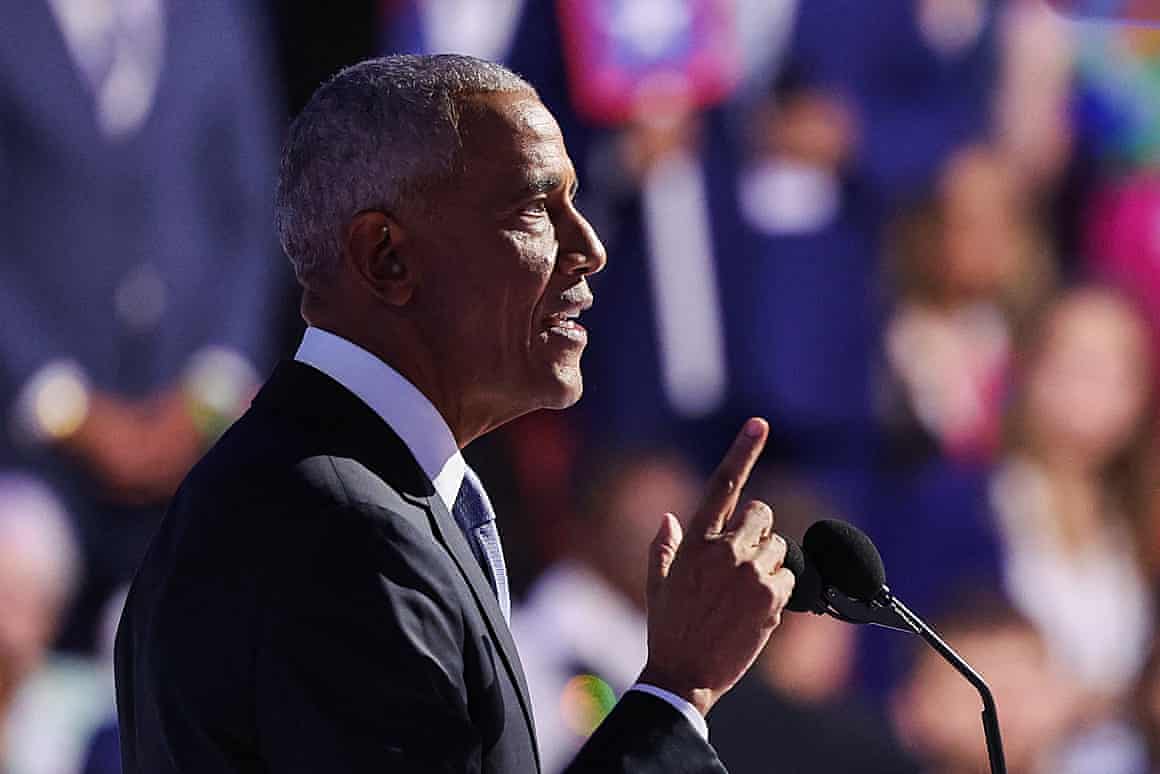 |  Barack Obama speaking at the DNC in Chicago in August. Photograph: Mike Blake/Reuters
| | | | Barack Obama is set to crisscross the battleground states for Kamala Harris next week, according to a senior Harris campaign official. The former president will hold his first event in Pittsburgh, Pennsylvania next Thursday, the beginning of a blitz across the handful of rust belt and sun belt states that will likely decide the 2024 election. -
Who else is campaigning for Harris? Liz Cheney, one of Donald Trump’s most prominent conservative critics, spoke to undecided voters in Ripon, Wisconsin, on Thursday, asking them to “reject the depraved cruelty” of Trump. Meanwhile, Bruce Springsteen has endorsed Harris, calling Trump “the most dangerous candidate for president in my lifetime”. -
What is Tim Walz up to? In a final push to engage Muslim voters ahead of the election, Walz joined a virtual summit hosted by a Muslim advocacy group and called for an end to the war in Gaza. He pledged that if elected, the Harris administration would work “side by side” with Muslim Americans.
Hurricane Helene: More than 200 dead, including twin babies who died alongside mother | | |  |  Kobe Williams (left) who died along with her twin sons Khazmir and Khyzier. Photograph: AP
| | | | Search-and-rescue teams continue to look for missing people in parts of the south-east that were devastated by Hurricane Helene. Officials have reported at least 215 deaths across six states, and are warning that the toll is expected to rise as recovery efforts continue. Nearlya million people in the region remainwithout power. -
Tragedy in Georgia: Twin newborns who died alongside their mother in Georgia have become the youngest known victims of Hurricane Helene. Kobe Williams, 27, and her sons Khazmir and Khyzier died after a large tree crashed through the roof. -
A hero in Florida: A man living in a Florida island city reportedly used his surfboard to rescue about a dozen of his neighbors – as well as pets – from flooded homes.
In other news … | | |  |  Union members picket in the rain outside the Dundalk Marine Terminal in Baltimore, Maryland. Photograph: Jim Lo Scalzo/EPA
| | | Stat of the day: Exported gas emits 33% more greenhouse gas emissions than coal | | | 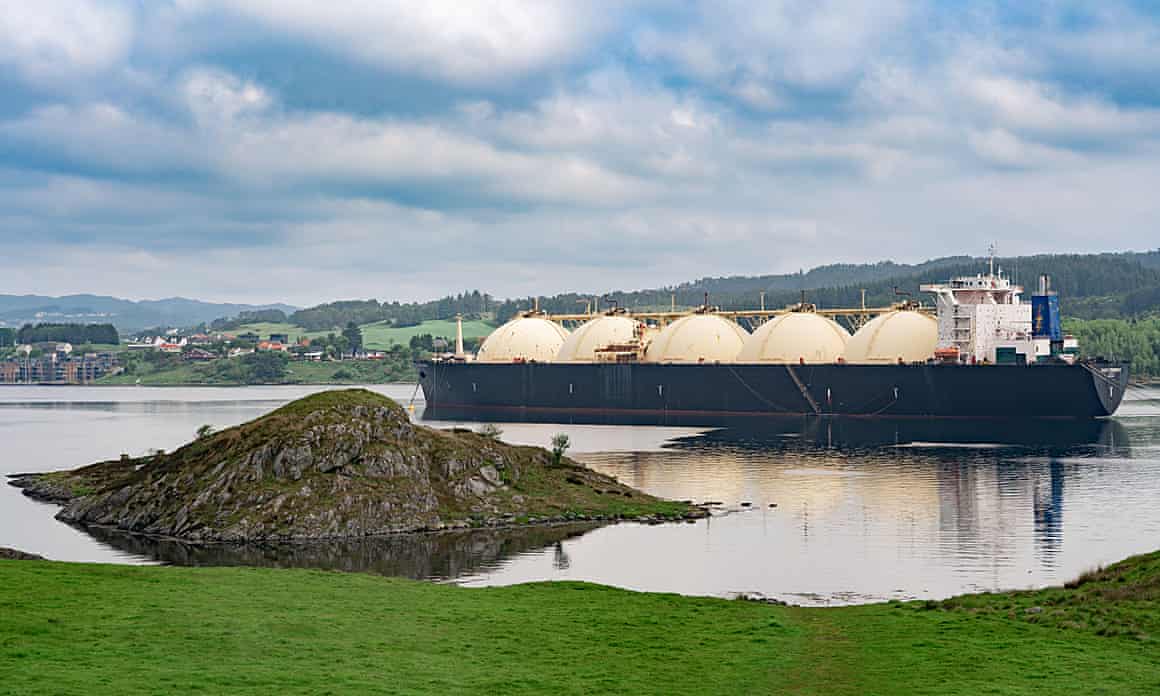 |  The fossil fuel industry has long claimed that exported gas is a cleaner alternative to coal, but new research is challenging that idea. Photograph: Panther Media GmbH/Alamy
| | | | Oil and gas producers for years have promoted liquefied natural gas (LNG) as a cleaner climate solution to coal, the dirtiest of fossil fuels when combusted for energy. But new research has found that the act of drilling, moving, cooling and shipping gas from one country to another creates more greenhouse gas emissions than burning coal. In fact, the actual final burning of gas in people’s homes and businesses only accounts for about a third of the total emissions from this process. “LNG has a larger greenhouse gas footprint than any other fuel,” said Robert Howarth, an environmental scientist at Cornell University and author of the new paper. “To think we should be shipping around this gas as a climate solution is just plain wrong. It’s greenwashing from oil and gas companies that has severely underestimated the emissions from this type of energy.” Don’t miss this: The future of the death penalty in Japan | | | 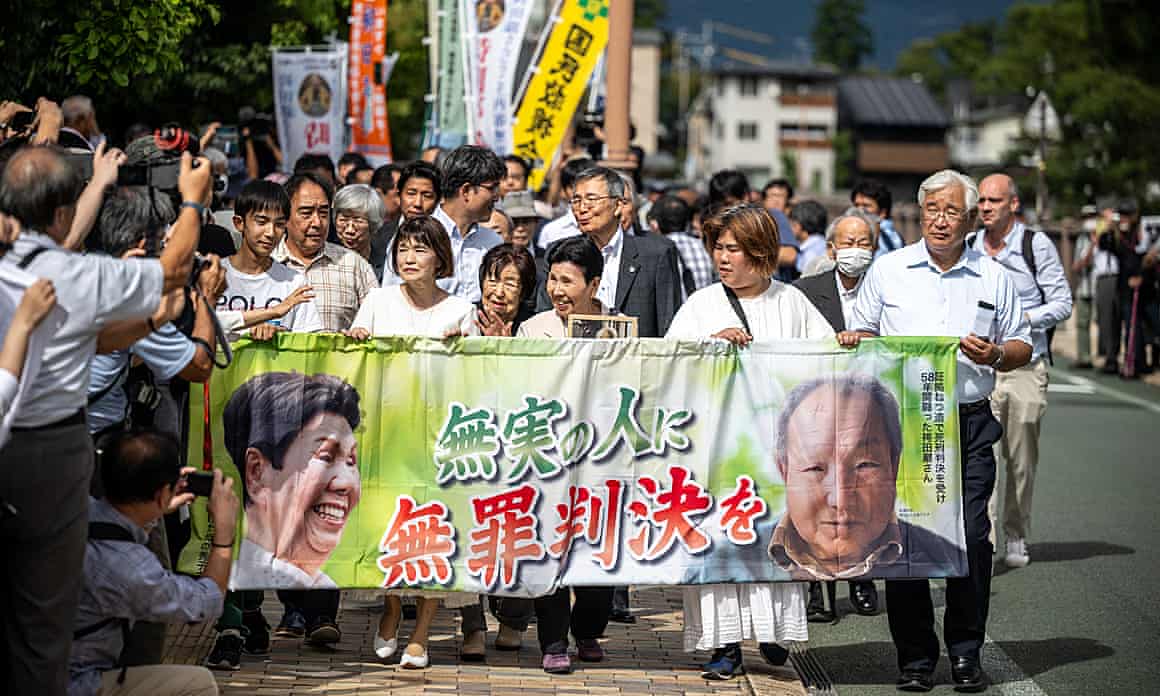 |  A banner reading ‘innocent man, not guilty verdict’ in support of Iwao Hakamada. Photograph: Philip Fong/AFP/Getty Images
| | | | Along with the US, Japan is the only other major industrialised country to retain the death penalty. But after Iwao Hakamada, the world’s longest-serving death row prisoner, was acquitted last month in a retrial after spending more than 45 years on death row, campaigners are raising questions about the future of capital punishment in Japan. “It is time for the government to recognise the human rights violations associated with the use of the death penalty and embark on a journey towards its full abolition,” said Chiara Sangiorgio of Amnesty International. … or this: Paul Simon reflects on his epic career | | | 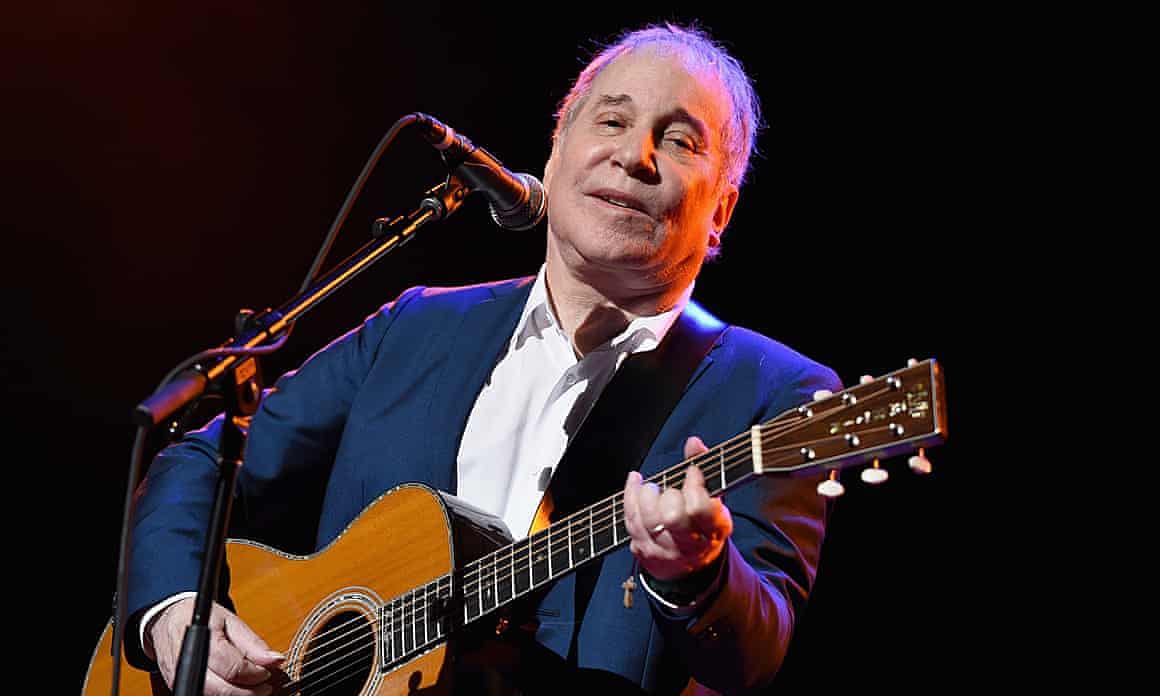 |  Paul Simon performing in New York in 2016. Photograph: Theo Wargo/Getty Images
| | | | Paul Simon spoke to the Guardian ahead of the release of a documentary film about his career, touching on everything from the inspiration behind The Sound of Silence to losing more of the hearing in his left ear while making his latest album, Seven Psalms, to the rumors about his retirement. “I never said I was going to retire,” he said. “I said I was going to stop, which I did …but I wanted to find out what happens when you stop.” Climate check: The greening of the Antarctic | | |  |  Plant cover on the Antarctic peninsula has increased more than tenfold in the last few decades. Photograph: Matt Amesbury
| | | | Plant cover on the Antarctic peninsula has soared more than tenfold in the last few decades, an unprecedented vegetation growth that scientists believe has been caused by the climate crisis. Analysis of satellite data found that the spread of plants, mostly mosses had accelerated since 2016 on this continent dominated by ice and bare rock. In 1986 there was less than 1 sq km of vegetation but by 2021 there was almost 12 times that. Last Thing: The music of an underworld far, far away | | |  |  Star Wars Outlaws weaves in-universe and player-focused music together. Photograph: Ubisoft
| | | | Cody Matthew Johnson had a unique task before him working on the video game Star Wars Outlaws – to compose music to go with the seedy criminal underworld of the Star Wars universe. “The galaxy is far-reaching, there are canonically thousands – some say millions – of planets, and the in-world music over the last 40 years only scratches the surface of possibilities,” the composer said. “The music for Outlaws wasn’t only about protagonist Kay Vess, and what she listens to, but more about the underworld she is existing in during the story – it’s not only the music enjoyed by the underworld subculture of Toshara, Akiva, Tatooine and Kijimi, but also the music created by that subculture.” Sign up | | | | | | First Thing is delivered to thousands of inboxes every weekday. If you’re not already signed up, subscribe now. Get in touch If you have any questions or comments about any of our newsletters please email [email protected] | |
| | | Betsy Reed | | Editor, Guardian US |
|  |
| | I hope you appreciated this newsletter. Before you move on, I wanted to ask if you would consider supporting the Guardian’s journalism during one of the most consequential news cycles of our lifetimes.
We have never been more passionate about exposing the multiplying threats to our democracy and holding power to account in America. In the heat of a tumultuous presidential race, with the threat of a more extreme second Trump presidency looming, there is an urgent need for free, trustworthy journalism that foregrounds the stakes of November’s election for our country and planet.
Yet from Elon Musk to the Murdochs, a small number of billionaire owners have a powerful hold on so much of the information that reaches the public about what’s happening in the world. The Guardian is different. We have no billionaire owner or shareholders to consider. Our journalism is produced to serve the public interest – not profit motives.
And we avoid the trap that befalls much US media: the tendency, born of a desire to please all sides, to engage in false equivalence in the name of neutrality. We always strive to be fair. But sometimes that means calling out the lies of powerful people and institutions – and making clear how misinformation and demagoguery can damage democracy.
From threats to election integrity, to the spiraling climate crisis, to complex foreign conflicts, our journalists contextualize, investigate and illuminate the critical stories of our time. As a global news organization with a robust US reporting staff, we’re able to provide a fresh, outsider perspective – one so often missing in the American media bubble.
Around the world, readers can access the Guardian’s paywall-free journalism because of our unique reader-supported model. That’s because of people like you. Our readers keep us independent, beholden to no outside influence and accessible to everyone – whether they can afford to pay for news, or not. | | If you can, please consider supporting us just once from $1, or better yet, support us every month with a little more. Thank you. | | |
|
|
| | |
| 
| Manage your emails | Unsubscribe | Trouble viewing? | | You are receiving this email because you are a subscriber to First Thing: the US morning briefing. Guardian News & Media Limited - a member of Guardian Media Group PLC. Registered Office: Kings Place, 90 York Way, London, N1 9GU. Registered in England No. 908396 |
|
|
|
|
|